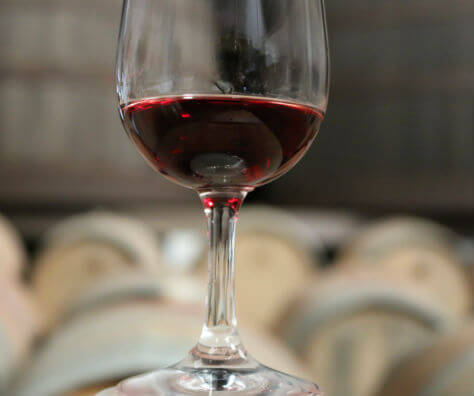Text João Barbosa | Translation Jani Dunne
To whom are good quality producers selling their wine? First of all: what makes a good producer? In that universe, I include those who take great care, pride and determination in what they do. They hire oenologists (in-house or otherwise) and maybe consultants who oversee production and have all the necessary equipment.
This universe accommodates a lot of wine makers in every region, who create different styles at various prices. I hear people say that, nowadays, there is no such thing as bad wine in Portugal. That’s a lie!
If 95% of the wine sold in Portugal costs less than five euros, only by chance could it possibly be good quality. Price does not tell you how bad a wine is, but it doesn’t do the opposite either. The problem with averages works for wine as it does for chickens: I ate one chicken, you ate none; between the two of us, each ate half a bird.
The average gets thrown off by low-priced wine (costing one euro or so). You can’t make a profit out of a high-standard product and then sell it for pennies, i.e. the one euro and a bit that it costs in the shop. The country is full of individual producers, companies and cooperatives that make bad wine. Some of that wine gets distilled, some of it never goes through the accountant and the rest is exported to markets where expats would die for a taste of home and where quality standards are low.
I might be pushing it a little by saying that the limit for those quality standards is three euros. I ask the wine-aware reader to avoid wine shops and look around local shops and supermarkets like Minipreço, Pingo Doce or Lidl to see what is out there. There is a lot of wine and, if you ask an employee about how much and how fast a specific wine gets sold, you will see a world you had never imagined.
Portuguese people don’t like to spend money on wine. It has low-value as a product; it’s not essential… Like with mothers: children always prefer their dog to their mother! Why? – you ask. Because mum is always there; we often only learn to appreciate her once she is very old or has left her body.

Wine © Blend All About Wine, Lda.
I ask of the wine connoisseur to ask friends – those who drink the wine that the connoisseur takes to rendezvous – how much they would be willing to pay for a bottle. In this case, I mean the Portuguese universe and not the small niche of oenophiles, their beneficiaries and those with plenty of euro to spare.
There is no lack of bad wine around. Sadly, the bag-in-box is now bad-in-box. I cannot get the picture out of my head. If anybody tries to fill a bag with wine of reasonable quality, all they get is a bad reputation. Those boxes are here to replace the demi-john.
The wandering oenophile should step out of the wine tourism spots and cute shops with a nice decor. He should look for “vinho do produtor” (producer wine) – that pure nectar, perhaps intoxicated with plant drugs. Buy it and drink it – it’s good. it’s also educational to “calibrate your palate”.
Do you need some examples? The Port in Minipreço costs three euro something… do you reckon it’s any good? Well, it has been approved. A monumental shame. Or other supermarket own-brands like Lidl or Pingo Doce. Besides those, wine from Continente has no criminal record.
A lot of bad wine is made by expert producers. Although, signing contract worth many thousands for pennies can only result in rests of the rests – easily-discarded remains. You can’t have it all! If a distribution chain wants a discount, they can’t expect high quality,
If a country doesn’t take pride in its wine – although, according to vox pop, we have the best in the world – and doesn’t pay the fair price, why not show them the door. I would certainly say that the best thing to happen to good producers was recession.
Imagine the (many) producers making good wine and having to borrow customers from competitors – “you take my business, I’ll take the next one’s” – but are also hoodwinked by non-paying distributors or restaurant owners. To them, the recession was a winning lottery ticket.
They spend more money anyway. It means more work and less hours of sleep, but at least their work is acknowledged and some customers are willing to pay more – the fair price.




Leave a Reply